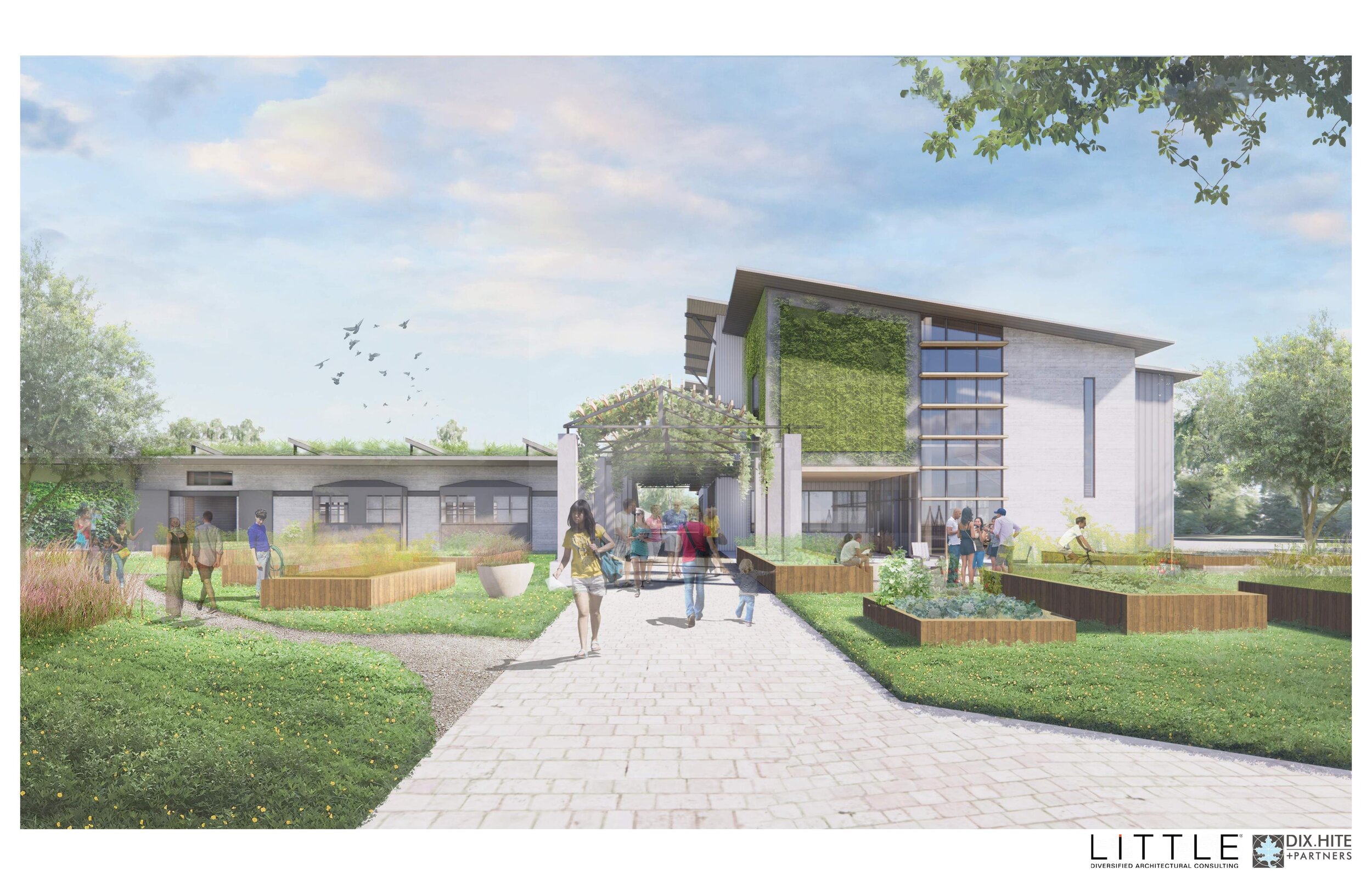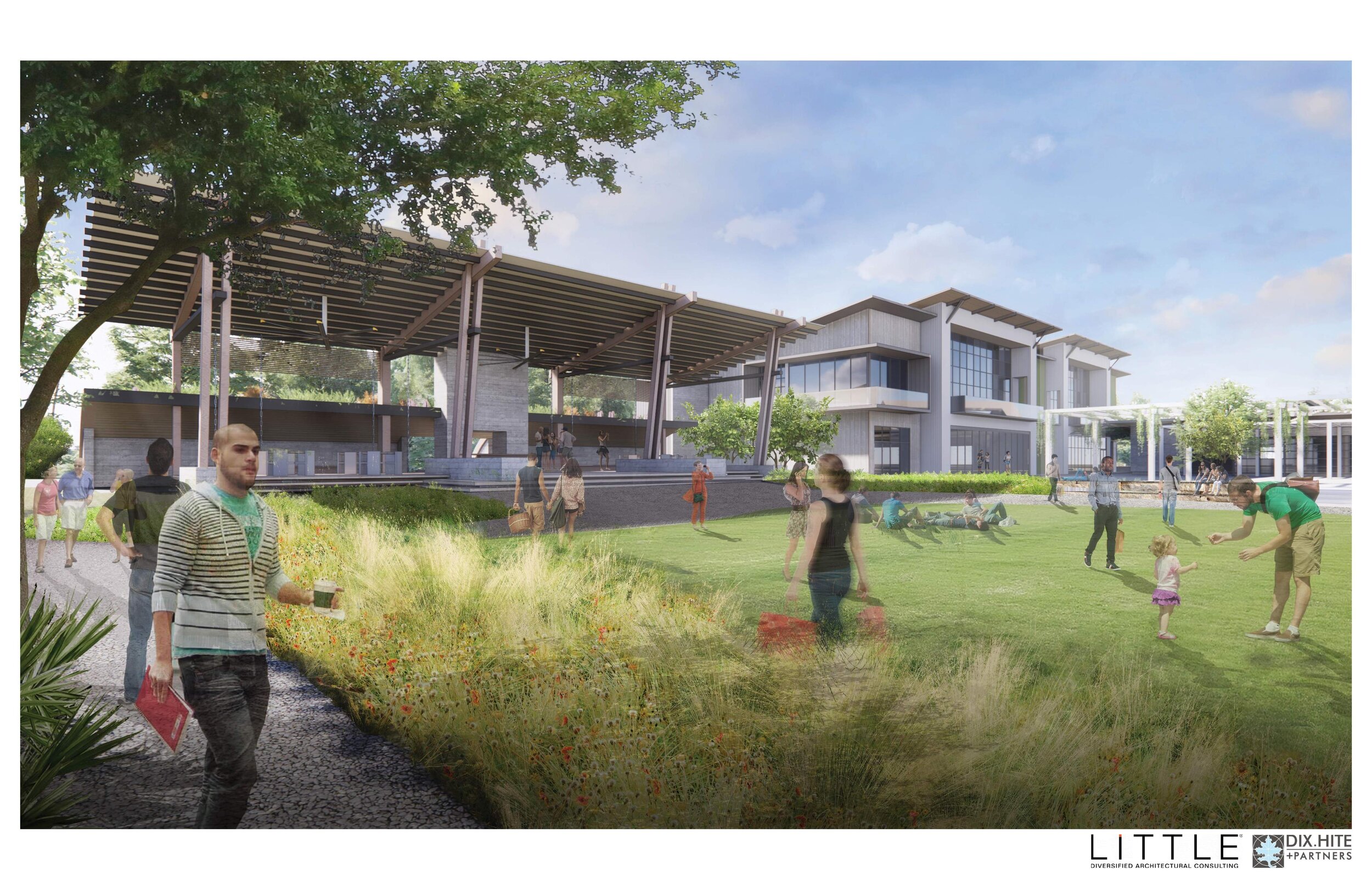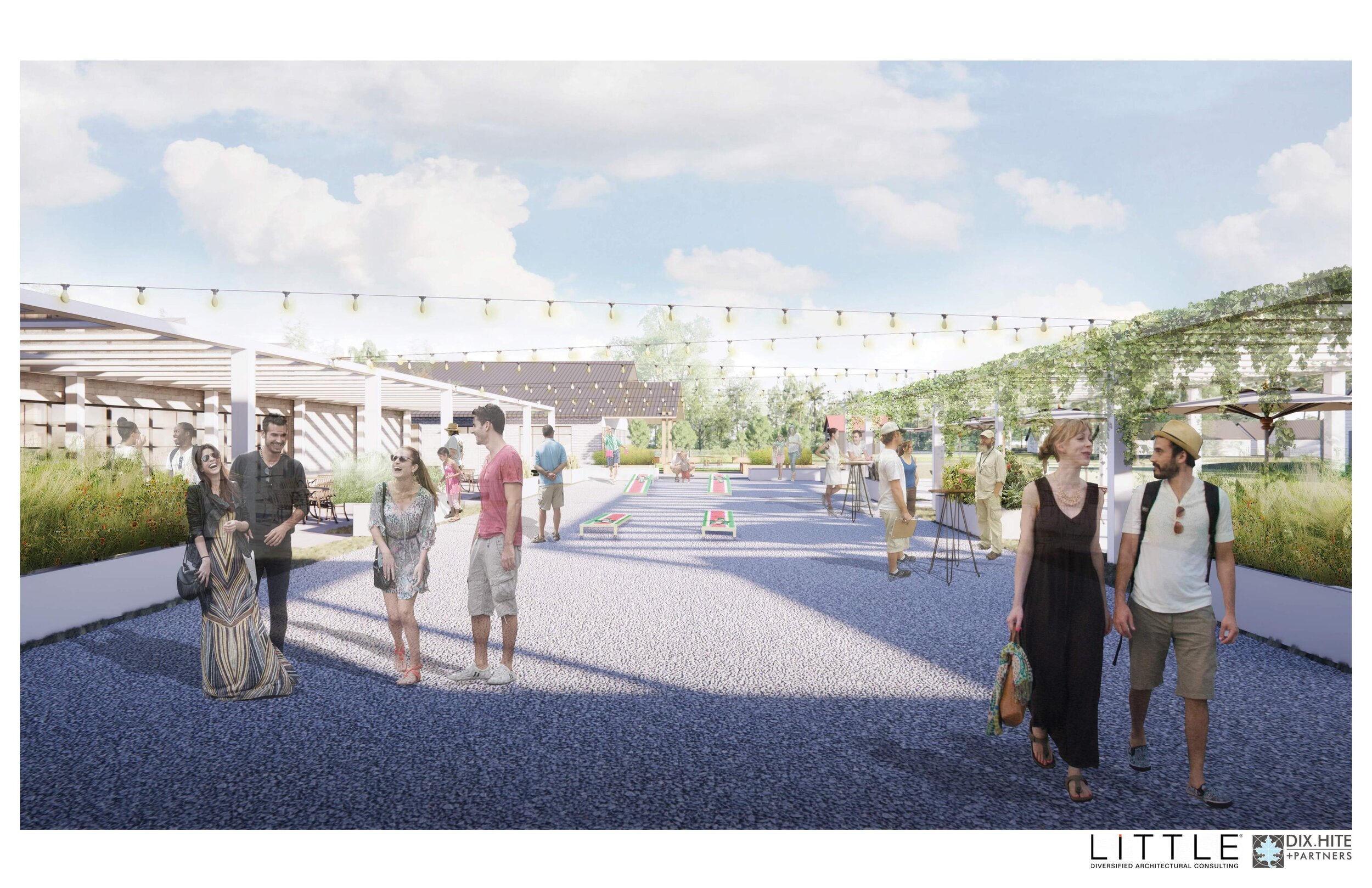Planting A Seed: The 4Roots Farm Design Process
The 4Roots Farm is an 18-acre urban farm that was envisioned by 4Roots, an alliance of community stakeholders—community leaders, business owners, designers, scientists and engineers—who are committed to creating a healthy, thriving and sustainable food system in Orlando. The farm, which will be "unlike anything seen in the country,” will increase access to fresh produce, educate people about agriculture and help stimulate the local economy. Needless to say, we were more than eager to dig into the project.
We helped 4Roots establish its vision for the farm, and subsequently guided the design team through the planning process by researching farms, analyzing the site, providing conceptual plans and designs, and developing programming. The results? A clear vision for the 4Roots Farm and a master plan document to help raise awareness and funds.
Laying the Groundwork
On our initial site visit, it became clear that there would be challenges. Did we bite off more than we could chew? The land (which was largely untouched) sat within the 100-year floodplain and wasn’t very pedestrian-friendly due to the lack of existing infrastructure. It was also clear that the development of a city park and the new Packing District posed some unique challenges as well.
After analyzing the existing conditions, we determined that stormwater would need to be a major focus (especially considering the 4Roots team’s sustainability goals), a wetland ecologist would need to be brought in to identify the ecological challenges and propose solutions, and the team would need to work very closely with the site engineer to carefully plan every element of the farm. We also realized we needed to learn much, much more about urban farming practices.
Sprouting New Ideas
We embarked on a research trip to visit successful farms of different scales that had similar missions to that of 4Roots. We took time to interview the farm managers to gain insight into their challenges and learn about each farm’s food production and processing methods—a key initiative for the 4Roots Farm.
When we returned, the team had a list of best practices and a “wish list” of programming ideas for the 4Roots Farm. The dream was to create a closed-loop system in which everything was truly sustainable: the food produced in the fields and hydroponic greenhouses could be processed on site and used at an on-site restaurant or packaged and sold. The look and feel of the farm would mimic a traditional farm experience and be a comfortable, inviting space where visitors could stay and linger.
Putting Down Roots
Our next step was to study how these programming elements would work on the site, connect with each other, and create a cohesive campus. By collaborating closely with the engineers and architects, we developed a conceptual plan that included all the desired programming elements 4Roots had dreamed of.
The concept was presented to the public and the resulting feedback was incorporated into a revised plan, which was later approved by the City of Orlando. Then, after providing a high-level cost estimate, 4Roots began its fundraising efforts. Finally, a revised plan and conceptual renderings were shared with the community to raise awareness for the project and get them hungry for more.
By taking 4Roots through the design process, we were able to shed light on critical issues and opportunities for the farm campus. And by establishing a vision of what the site could be in reality—and what it would take to get there—we empowered 4Roots to think beyond their original dream. Although the complexity of the site was a challenge, collaboration among the design team resulted in thoughtful solutions and a viable plan. Hungry for more? Take a look at more project renderings for a taste of what’s to come!





